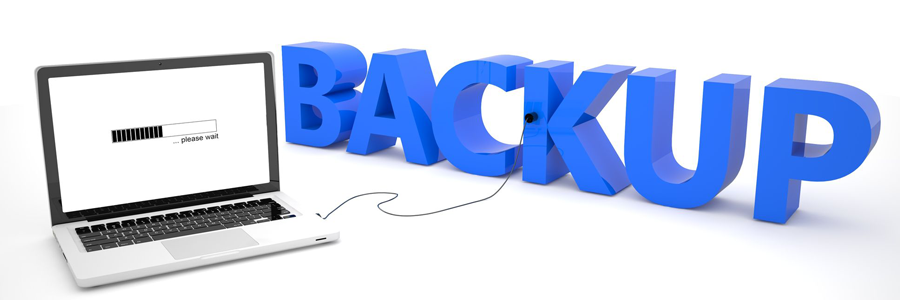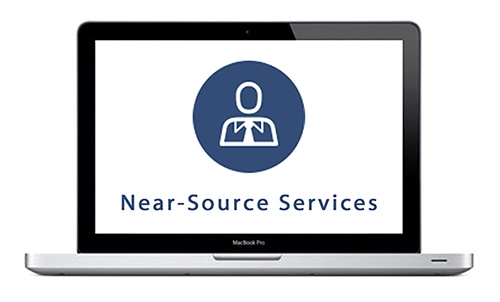Who wouldn’t want to shop at a store that can deliver that! Is this some Nigerian business opportunity? Not at all… A review of the services we deliver for our clients showed that our clients receive an average of in services for every $1.00 they spend with us. This is based on a cost comparison between hiring a full-time, beginner technician or outsourcing to us. And that’s not taking into consideration the combined experience our team brings to your organization that you WOULDN’T get by hiring a single person. Of course you don’t see a lot of the work that goes into our services because they are done behind the scenes or after hours so that we don’t disturb you while you’re working. But in a time where saving money is more important than ever, it IS worth noting that you made a smart decision to outsource your services to us! Who Else Wants To Win A $25 Gift Card? “Take my monthly Trivia Challenge and you could win too!” The Grand Prize Winner of last month’s Trivia Challenge Quiz is…drum roll please… ! They were the first person to correctly answer my quiz question from last month: In the novel Moby Dick, in which American port is the whaling ship Pequod based? a-Nantucket, b-Cooperstown, c-Mystic, d-Boston The correct answer is (a) – “Nantucket.” Congratulations, , you’ve won a ! Now, here’s this month’s trivia question. The winner will receive a gift card to . In 1657 the first chocolate shop opened up in what city? a-London, b-Vienna, c-Amsterdam, d-All of the above Call me right now with your answer! XXX-XXX-XXXX Get More Free Tips, Tools and Services At My Web Site:
How To Spot An E-mail Hoax
With the Internet and e-mail providing a free, viral platform for online scammers, hackers and cyber criminals, there’s no doubt that at some point you’ll receive an e-mail hoax. Some are harmless, but many can lead to virus infections, identity theft or worse. Here are some common themes to watch out for: Supposedly free giveaways in exchange for forwarding e-mails Bogus virus alerts False appeals to help sick children Pointless petitions that lead nowhere and accomplish nothing Dire, and completely fictional, warnings about products, companies, government policies or coming events Probably the most common indicator that an e-mail is a hoax is the “Send this e-mail to everyone in your address book” request. Hoax writers want their material to be spread as far and wide as possible, so almost every hoax e-mail will have this request built into the message. In some cases, e-mail hoaxes will even give you a specific number of people to send the message to in order to collect a prize or get something for free. Another surefire indicator that an e-mail is a hoax is that they don’t provide a checkable reference to back up claims. Genuine competitions, promotions, giveaways or charity drives will almost always provide a link to a company website or publication. Real virus warnings should only come from your installed anti-virus software. E-mails containing government or company policy information are likely to include references to checkable sources such as news articles, websites or other publications. A third indicator is often the actual language used. E-mail hoax writers have a tendency to use an emotive, “over-the-top” style of writing peppered with words and phrases such as “Urgent,” “Danger,” “Worse virus ever,” and so on. Another indication is that these messages contain ALL CAPITAL LETTERS for added emphasis. When in doubt, don’t forward the message or take the action requested. Client Spotlight: ABC Insurance [Insert story about this client and what you did for them: If you are looking for a company to take the headache out of your insurance needs and save you a bundle too, look no more! We were recently introduced to them through a mutual client, Bob Smith of XYZ Corp. They were having some problems with their network which we fixed immediately.] Would you like your company highlighted here in our “Client Spotlight?” Then give us a call today at XXX-XXX-XXXX
Could You Be Breaking The Law By Not Archiving E-mails?
It’s 4:30 on Friday afternoon when you get the message that a key vendor will not be able to deliver what they promised on time, which will in turn cause YOU to miss a critical deadline for your most important client. Frustrated, you call the vendor, who instantly denies ever being told about the deadline. You know deadlines were discussed but can’t find it in your original written agreement. You then turn to your e-mail only to be forced to dig through hundreds of messages to try and find the e-mail where you conveyed the importance of this project being delivered on time, but you can’t find it because it was deleted. Sound familiar? Or perhaps you’ve been in a similar situation where you’ve had to “dumpster dive” for old e-mail communications? Think about it – almost all of your business communications and negotiations are performed via e-mail, making them important documents to keep for reference. And since you send and receive hundreds if not thousands of e-mail messages annually, it just makes sense to have a simple and easy way to find old communication threads. But this isn’t just a convenience issue, it’s a legal one. What Every Business Is Required By Law To Do Some industries have strict federal guidelines on storing e-mail communications (financial institutions for example). But what most people don’t realize is that ALL businesses must comply with the Federal Regulations on Civil Procedures, or FRCP. In this instance, ignorance is far from bliss – it could put you and your organization in serious legal trouble. The amendments, which went into effect on December 1, 2006, mandate that companies be prepared for “electronic discovery.” Simply put, that means you must know where your data is and how to retrieve it. Failure to do so can lead to fines or loss of a lawsuit. But I Have A Backup…That Means I’m Okay, Right? Wrong! E-mail archiving is not the same as conventional e-mail backups. Backups only enable you… …to restore your e-mail servers to a previous point in time in the event of a disaster. An e-mail archive (unlike a backup) is indexed and searchable, which means you can find e-mail communications based upon various criteria, such as date, subject, sender or receiver address, attached files, or any combination of the above. Aside from the legal issues, e-mail archiving just makes sense. Murphy’s law dictates that you’ll need an e-mail the minute you permanently delete it; that’s why it’s smart to archive your inbox. Plus, it will make searching your inbox infinitely faster (not to mention easier) AND prevent your inbox from getting so overblown that it stops working due to file size limitations. If you want to set up an e-mail archiving solution for your company, give us a call at: xxx-xxx-xxxx or e-mail us at: yourname@yoururl.com
Ransomware rescue kit released to combat criminal enterprise
A rescue kit designed for security professionals and system admins has been released to eradicate ransomware infections.
A ransomware removal and rescue kit has been released to give businesses an alternative to paying a fee to unlock encrypted files.
Attackers can access Dropbox, Google Drive, OneDrive files without a user’s password
The so-called "man-in-the-cloud" attack is said to be a common flaw in most cloud-based file synchronization services.
Hackers don't even need your password anymore to get access to your cloud data. Newly published research, released at the Black Hat conference in Las Vegas on Wednesday by security firm Imperva, shows how a "man-in-the-cloud" attack can grab cloud-based files -- as well as infecting users with malware -- without users even noticing.
Cybersecurity Information Sharing Act (CISA): the dirty deal between Google and the NSA that no one is talking about
The world’s cyber security experts say that CISA won’t stop cyber attacks, but it will create a gaping loophole for law enforcement agencies from the NSA right down to your local police departmentto access people’s private information without a warrant.
Microsoft releases out-of-band patch for Windows zero-day vulnerabilty
Microsoft has released a rare, out-of-band patch to resolve a Windows zero-day vulnerability that could allow for privilege escalation or remote code execution.
MS15-078 has been added to the list of patches released as part of last week's Patch Tuesday.
FREAK SSL FLAW: Who’s going to get the fix first?

A new web crypto bug, disclosed Tuesday, is affecting many Safari and Android users. So between Apple and Google, who is going to send out the bug fix first?
What is it?
The FREAK bug is the latest vulnerabilities affecting the Secure Sockets Layer (SSL) and Transport Layer Security (TLS) protocols used to encrypt traffic between an HTTPS website and a browser.
Personal Backup: Why it is Necessary and Finding the Best Options
23 ways to improve your iPhone's battery life
Apple's latest iPhones still don't pack as much battery life as some of their nearest competitors. But by applying a few system tweaks, you can improve your iPhone's battery life considerably. Now that iOS 7 is out, there are even more ways to conserve your mobile's power.


